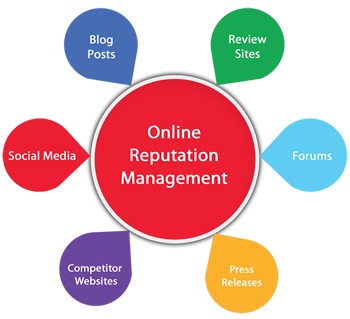
What is Online Reputation Management (ORM) and how to improve it?
In the online world where information spreads faster than wildfire, managing your online reputation is especially important. Not only is it the predominant way that organisations and individuals alike increase their reach, but it is also the quickest way that reputation and brand can be damaged.
One bad experience by a customer can easily lead to a flurry of bad reviews and negative commentary – even if it only comes from the same source! To navigate the treacherous but rewarding domain of Online Reputation Management (ORM) can be a daunting task, but with the right tools and knowledge, you can improve your online reputation, increase brand awareness, and drive sales.
1. What is Online Reputation Management?
ORM aims to manage the distribution of online information about a company, individual or brand. The main objective is to build an accurate and sustainable reputation that represents the mission statement and vision of the brand, whilst driving brand awareness, site visits and sales.
ORM is broadly categorised under search engine optimisation (SEO). When people search your brand online via Google, Bing or other search engines, it is important that your brand comes out on the first page. Roughly 98% of searchers won’t look past the first page of search results, and consequently if your SEO and online reputation is vague or underperforms, searchers might very easily never land on your site at all.
This means that any content about your brand that lands on the first page will most likely be consumed by interested searchers – this includes the good, the bad and the ugly. Therefore it’s important to make sure your reputation is in good standing with the online community, as well as easily findable when searched for.
Positive impressions aren’t something that falls in your lap, it needs to be worked on and optimised continuously. There exists a variety of channels through which you can approach online reputation management.
Let’s review the channels in more detail:
There are four distinct types of media that will contribute to the online reputation of your brand. These channels are:
- Owned media
- Earned media
- Shared media
- Paid media
1.1 Owned media
Owned media includes any online media that is owned by your brand, such as your brand’s website, blogs, or third-party website pages. This is where SEO is rather important. You will have greater influence over your online reputation if you can rank higher in search results with controlled web pages.
1.2 Earned media
Earned media refers to media coverage that doesn’t cost you or the organisation significant sums of capital or funding. This includes press coverage, articles and blogs on other websites, forums, third party listings such as Glassdoor, Trustpilot, Hello Peter, and lastly, review sites such as Google and Yelp.
Earned media is a great way to instil brand confidence, because if other parties mention your site, it signals a level of trust that the publisher has in the brand they are mentioning. This will also help Google’s algorithm recognise an increase in positive off-page signals, which in turn will attribute more authority and trustworthiness. This improves your brand’s rank when searched and can lead to a significant increase in online traffic to your content.
1.3 Shared media
Any sort of content marketing that is shared between your brand and others is referred to as shared media. Your many social media profiles, for example, are examples of shared material. Despite the fact that you control your accounts and publish unique social media postings, anybody may reply with favourable or bad comments.
It’s critical to monitor how people interact with your business online, especially on social media. If you have a lot of negative criticism on Facebook or on Twitter, it might hurt your brand’s image. Make a determined effort to monitor real-time brand mentions and seek help from online reputation management organisations to counter unfavourable criticism.
1.4 Paid media
Paid media encompasses all channels, platforms, and digital marketing vehicles in which you must pay to have your business included. Paid media includes social media advertisements, Google Ads, Microsoft Ads, LinkedIn sponsored messaging, display ads, native ads, and sponsored content. Paid media may be used to reinforce your favoured story. It is not as lucrative as earned or owned media, however, people trust organic search results more than commercial or paid advertising.
2. Why is reputation management important?
Every day, customers give companies one to five stars and leave comments, blogs, or social network postings. As a result, everything a person says about a business becomes important to both the business and potential clients. After all, negative ratings and reviews can make or break a company. Similarly, a potential consumer may shun the existing firm in favour of a competitor’s.

Some of the why’s:
- Better search engine ranking
- Increasing customer trust and credibility
- Higher revenues
- Professional image
2.1 Better search engine ranking
Online reviews may have a significant influence on SEO. Customers attach a lot of emphasis on the company’s online reviews when making a selection since search engine algorithms know it very well. As a result, a company that makes every effort to manage its online reputation is rewarded with increased SEO exposure.
2.2 Increasing customer trust and credibility
It’s not only about appeasing the algorithm when it comes to online reviews. It’s also about how consumers recognise a brand. With customers believing internet reviews, earning customer trust is critical. Everyone understands that a company’s reputation is critical to its existence. Once the client’s trust is earned, the existing customer will tell others about the company.
Online reviews are heavily weighted in determining whether or not to trust a business. A good reputation management strategy may readily assist a corporation in gaining trust. As a result, favourable evaluations might increase potential clients’ faith in the company. A good reputation indicates that the company is more trustworthy than its competitors.
2.3 Increases brand reliability
When customers make use of trust to differentiate a brand from its competitors, it can effectively convey that the brand is reliable. When a brand is considered to be reliable, it can help to translate to sales.
Online reputation management is very important for a business. A study conducted by the Harvard Business School showed that businesses that enjoyed higher ranks enjoyed better revenues around 5-9%.
2.4 Professional Image
A great corporate image is a critical marketing tool for a business. A company may require a significant amount of time to persuade potential consumers to adopt its products or services.
Customers, both current and prospective, would try to discover information about a business separation by Googling the name on Google. Because potential clients have no better concept about a company, they will hunt for available web information and then make a judgement. As a result, if potential clients discover a bad reputation, they will not do business with you. As a result, it would be preferable for the company to get rid of any unfavourable reputation.
3. Tools for managing your online reputation
Online reputation monitoring is exactly what it sounds like: you observe and note what the online community is saying about your company. This is also significant since it allows you to deal with unfavourable reviews before they become uncontrollable.
Consider it a virus in your body; the sooner you discover it, the better. Why? Because you can treat it right now before it worsens and permanently harms you.
The same idea applies to online reputation management. The sooner you notice client concerns and unfavourable evaluations, the better. Because you can address the issue promptly before it affects your operations or how others perceive your company.
Below are some tools you can use to monitor and track your brands activity, engagement, content quality and rankings on different sites, platforms and websites:
All of the above tools are frequently used by some of the strongest brands on the internet, and the best of it all, in most cases, the tools are not costly and easy to set up!
Conclusion
There are such a multitude of online platforms and amazing digital marketing tactics available. Making a decent internet presence is not an easy undertaking for any firm, but with accurate and consistent online reputation management, maintaining a positive brand and online reputation will be vastly beneficial to your brand, organisation and longevity of your brand’s journey.